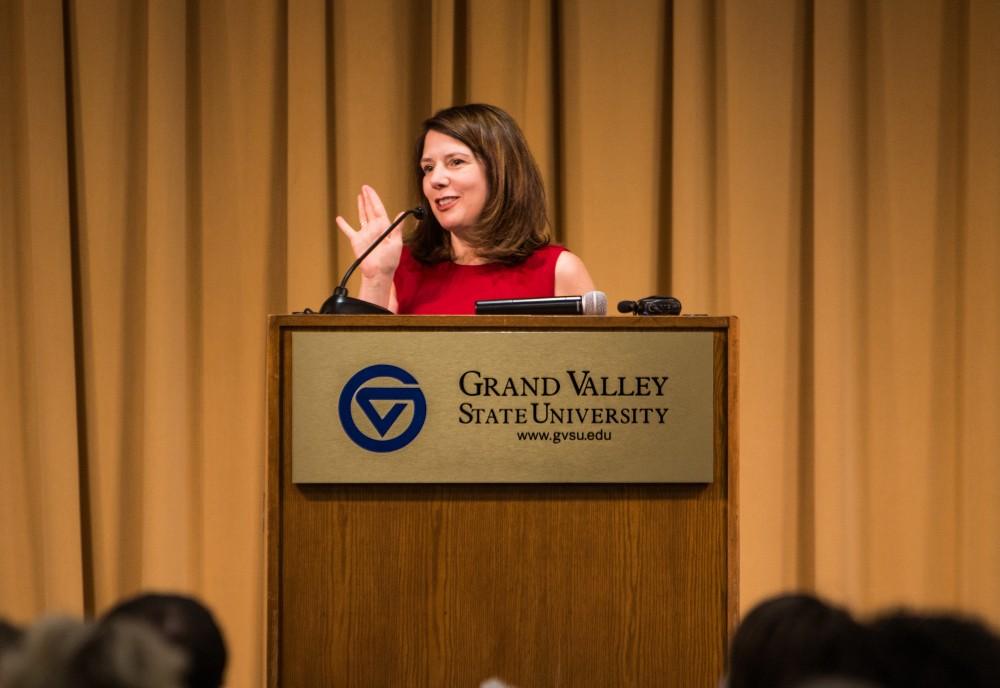Provost discusses equity at Women’s Commission luncheon

GVL / Spencer Scarber Grand Valley Provost and Executive Vice President for Academic and Student Affairs Maria Cimitile addrressed attendants of the Women’s Comission Fall Welcome Luncheon Tuesday. September, 19 2017
Sep 21, 2017
The Women’s Commission at Grand Valley State University hosted its 21st annual Fall Welcome Luncheon Tuesday, Sept. 19, in the Kirkhof Center. At the event, Provost and Executive Vice President for Academic and Student Affairs Maria Cimitile spoke about advocacy, equity and the family-leave task force.
“The Women’s Commission is an organization made up of faculty and staff who provide services for women and women-identified individuals at Grand Valley State University,” said Kristen Evans, commission co-chair. “The organization originally grew out of the need to correct the gender-pay disparity prevalent in the 1990s and is responsible for the creation of the Women’s Center (now the Gayle R. Davis Center for Women and Gender Equity) in Kirkhof.”
The Office of the Provost, which oversees all student services in the area, as well as funding for the surrounding community, intersected with the Women’s Commission’s goal of providing opportunities to those disadvantaged communities within society.
“The luncheon is a great way for men and women on campus to get together and make connections,” said Jenna Vainner, co-chair for commission events programming. “It helps us come together as a campus and is a happy way to celebrate who we are, talk about what we stand for and strengthen us as a whole.”
During her speech, Cimitile urged the audience to consider their own individual contributions to academic excellence in helping create opportunities for achievement. She asked the attendees to reflect on what they can do to address growing inequities at GVSU and abroad.
“We need to value education in all the forms it takes,” Cimitile said. “Education, the power of ideas, is a change agent. It impacts one’s economic life. We can grow in the strength of knowledge through intellectual engagement.”
Cimitile argued that sameness and equity are not synonymous terms, with the former having more to do with fairness for all. She suggested seeking opportunities to remove the power of structures and matrices preventing marginalized groups from academic progress.
“When I think about leadership, I don’t think about titles or roles: I think about goals and actions,” Cimitile said. “We cannot just say that we’re in favor of equity. We need to interrogate what equity means, identify areas that lack equity and make inroads of filling that gap, become role models for one another.”
The Women’s Commission plans to continue its advocacy with a renewed focus on issues of education through family leave. The commission uses the intersections of race, class and gender to make faculty and staff equitable and better equipped to serve students and benefit the campus climate.
“Our goal is to keep identifying issues concerning women and continue the traditions of the past, grow our membership and advocate for inclusion equity,” Evans said.























